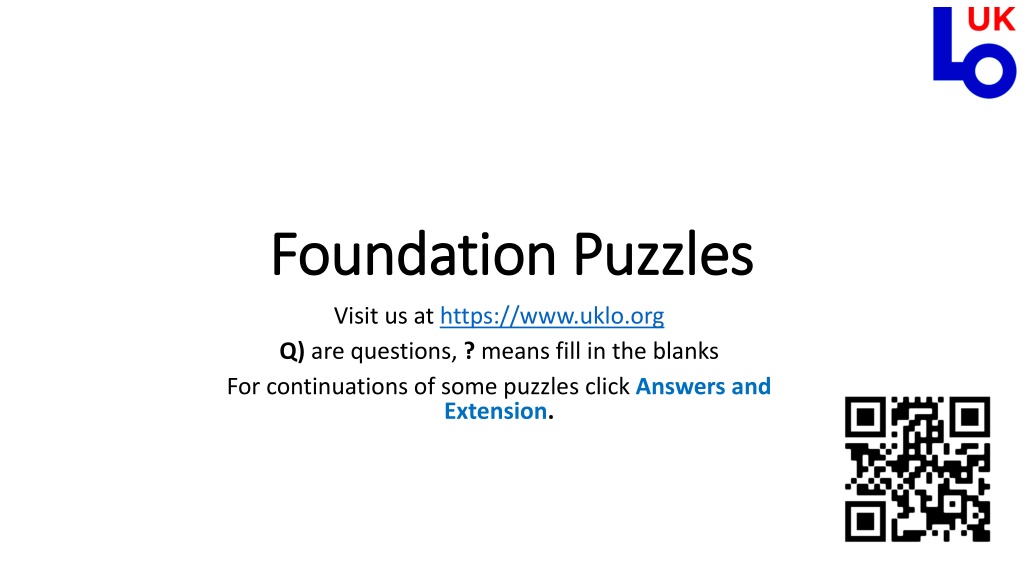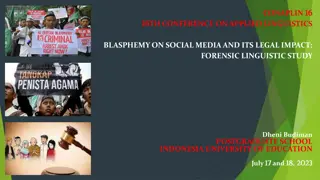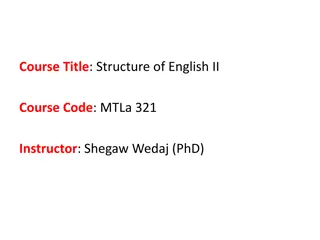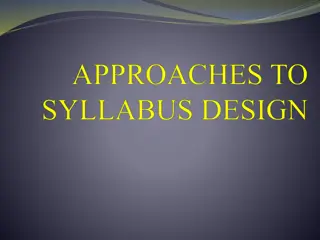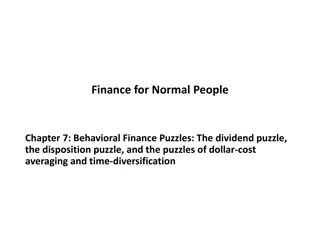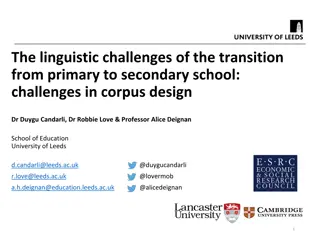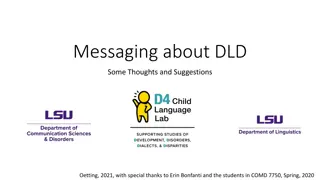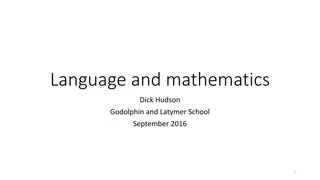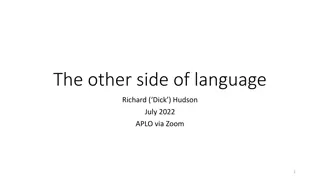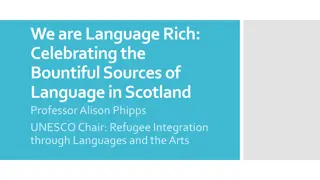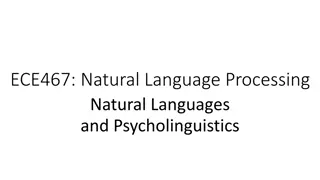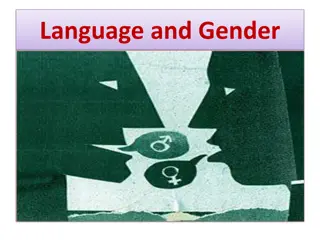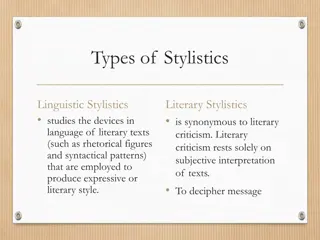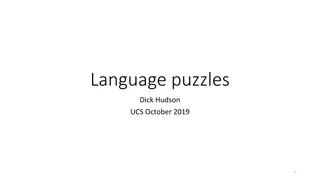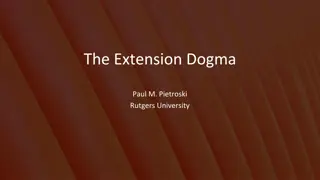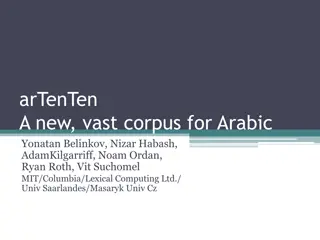Fun Linguistic Puzzles and Language Challenges
Engage in a variety of linguistic puzzles and language challenges involving Ditema, Ligurian, Old English, Arhuaco, and Basque languages. Test your skills in pronunciation, stress patterns, translations, and sentence structure with interactive exercises provided in the content.
Download Presentation

Please find below an Image/Link to download the presentation.
The content on the website is provided AS IS for your information and personal use only. It may not be sold, licensed, or shared on other websites without obtaining consent from the author.If you encounter any issues during the download, it is possible that the publisher has removed the file from their server.
You are allowed to download the files provided on this website for personal or commercial use, subject to the condition that they are used lawfully. All files are the property of their respective owners.
The content on the website is provided AS IS for your information and personal use only. It may not be sold, licensed, or shared on other websites without obtaining consent from the author.
E N D
Presentation Transcript
Foundation Puzzles Foundation Puzzles Visit us at https://www.uklo.org Q) are questions, ? means fill in the blanks For continuations of some puzzles click Answers and Extension.
Writing System: Ditema Copy this table down, try and pronounce them! Click for Answers Q) = ? = ? = ? Q) Which one is Ditema tsa Dinoko ?
Language: Ligurian Copy this table down, try and pronounce them! Click for Answers and Extension Q) Which words have the stress on the wrong syllable? ( n.b. accented letters e.g. show stress) Can you write them correctly?
Language: Old English Click for Answers & Extension Q) se cyning eow lufode = ? wit lufodon t m gden we two loved the girl t m gden unc lufode the girl loved us two ge lufodon t m gden=? ge lufodon one cyning you all loved the king se cyning inc lufode the king loved you two wit inc lufodon = ? t m gden we lufodon we all loved the girl The prince loved the child = ? we inc lufodon we all loved you two The child loved the prince = ? wit eow lufodon we two loved you all unc lufode se eling the prince loved us two We all loved the child = ? t cild ge lufodon you all loved the child The child loved you two = ?
Language: Arhuaco Click for Answers & Extension put the stick down put the book in (e.g., a bag) put the plate down (e.g., on the table) put the plate up (e.g., on a wall) put the house down k n gaka ribru k pas ribru pan put the book down pratu pan ribru it o s put the book up (e.g., on bookshelf) put the machete down pratu ipan masite gaka uraki sa masite igeika put the machete up (e.g., on a wall) put the machete in (e.g., the box) put the plate down (e.g., in drying rack) a n sa put the rock down a n isa put the rock up (e.g., on a shelf) masite k gaka pratu t o s Q) Put the needle down (needle = akusa) = ? Put the sack of corn down = ? Put the rock in (e.g., a bag) = ? Put the sword down (sword = oha) = ?
Click for Answers & Extension Language: Basque Emakumeak gizona ikusi du. The woman has seen the man. Q) Identify the column that is Norwegian/Swedish by locating the word for Norwegian / Swedish . Q) Are the sentences below Norwegian or Swedish? a) Dette er flott. b) Jeg kan ikke spise frokost veldig tidlig. c) T get r mycket tidigt. Zuk umea ikusi duzu kalean. You (singular) have seen the child in the street. Where have you seen the child? Non ikusi duzu umea? Nork ikusi du umea kalean? Who has seen the child in the street? The child has not seen the man. Umeak ez du gizona ikusi. Emakumeak liburua irakurri du. The woman has read the book. Umea etorri da. The child has come/arrived. Umea kalean erori da. The child has fallen in the street. Igela agertu da. The frog has appeared.
For more puzzles For more puzzles Go to https://www.uklo.org/past-exam-papers/ Typefoundationin the search box Please give feedback in the comments section! https://www.uklo.org/feedback/
